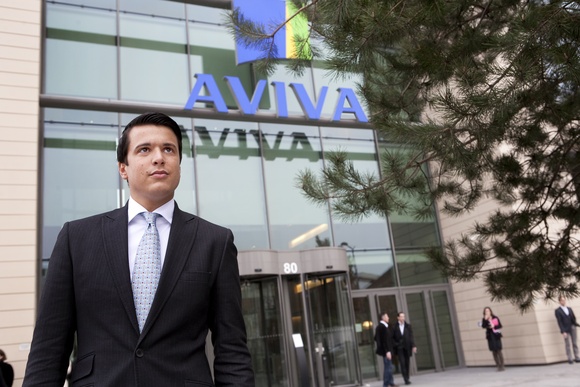Max-Hervé George might be the world’s richest man if Aviva acknowledges his existence
“Dear god almighty, you’ve got to read this,” writes Tim Worstall.
He links to a story on the FT about Max-Hervé George, 25, who has taken on insurance company Aviva France.
Dan McCrum says it is “the worst contract in the world”, a peculair thing first reported in the French magazine Challenges:
The company was L’Abeille Vie. In 1987 it began to offer a special deal to its richer clients, a Fixed Price Arbitrage Life Insurance Contract… prices for the funds were published each Friday, and clients were allowed to switch funds at those prices anytime before the next price was published, even if markets moved in the meantime.
As Kottke says, it’s “like Grays Sports Almanac from Back to the Future II, only for financial markets.
He’s rich. Very rich.
His last report in 2007 valued George’s investments €1.4 million. They are growing at 68.6% per year. By 2030, George will be worth €234 billion. The longer he lives the richer he becomes. Guaranteed. The contract ends on his death. Aviva has not hired a hit man, but it has stopped replying to his letters. Aviva are behaving as if George didn’t exist. But they have a contract. He does exist. And he has the paperwork to prove it.
L’Abeille Vie called this an arbitrage, but really it was a gift. Is the stock market up this week? Just call your broker to buy it at last week’s price and pocket the difference.
In a world where the price of everything is now a mouse click away, offering a hindsight investment service seems incredible, if not suicidal. Yet thirty years ago prices for funds were published infrequently. Trading involved calling your broker, visiting him person, or maybe sending a fax. It could take days for the trade to be processed, during which time the market could move again…
In 1997 L’Abeille Vie’s known price deal was still available and Mr George senior took out polices for the whole family, depositing Fr50,000 (almost E8,000) in the name of young Max-Hervé.
Shortly afterwards, Abeille Vie — which had by then been absorbed into Commercial Union — stopped selling magic tickets. It could not tear up thousands of contracts, so it tried a more subtle tactic: policy holders were sent new papers, with the offer of 100 francs for the trouble (about £10). It is a measure of the bureaucrat’s art that almost all did sign, but the Georges declined.
Mr George grew up with a fine appreciation for the power of paperwork and the French legal system. Each week the family would switch their money into the best fund. “At the beginning I could send the document by fax, so it was really easy. Soon after they told me no, only by letter”, he said. To make sure nothing goes awry in the post, Mr George pays for a court appointed bailiff to deliver each set of instructions. The paper has piled up almost as fast as the money: “I would need to take one Boeing to bring all of the documents with me”, he said.
…the families investments grew in value at 68.6 per cent a year for a decade from 1997. As of 2007 the family’s investments were worth €21m, with €1.4m belonging to Max-Hervé.
Mr George continues to arbitrage time. For instance, he might have his money in an Aviva fund invested in the French stock market. Lets say the Nikkei 225 rises 5 per cent during the week. He’ll tell Aviva to move his investments into its Japanese fund, at the price before the market moved.
Ker-ching!
Well, it will be if the French courts agree that the contract is binding…
Posted: 28th, February 2015 | In: Money Comment | TrackBack | Permalink



